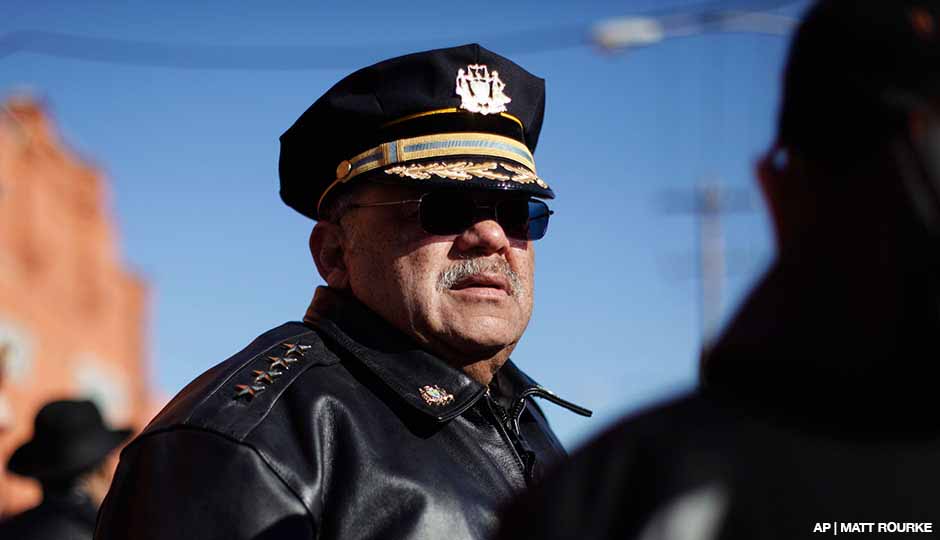Charles Ramsey and the All-Powerful Cabal of Top U.S. Cops

Philadelphia Police Commissioner Charles Ramsey. AP | Matt Rourke
Writing for Politico Magazine, Simone Weichelsbaum reports on a tightly-knit, extraordinarily powerful band of big city police chiefs:
It is no exaggeration to say that this network has revolutionized modern policing over recent decades. This experimentation with policing philosophies and techniques sometimes went awry, especially in minority neighborhoods throughout the nation—an outcome that in the past year or so has burst into public view in places like Ferguson, Missouri, Cleveland and, of course, Baltimore.
Now this elite network is out to revolutionize policing again.
In recent months, challenged by a growing protest movement after the deaths of several African-Americans at the hands of police, the network has been feverishly exchanging ideas on a next wave of reforms. (They also are teaming up with progressive prosecutors to push for measures that would keep many mentally ill, addicted and nonviolent offenders from jail.) The aim is to steer the profession toward a more community-friendly mentality — to cast themselves, in the new jargon, as “guardians” rather than as “warriors.”
It should surprise nobody that Philadelphia Police Commissioner Charles Ramsey is one of the chiefs at the very core of this group.
Weichelsbaum reports that Ramsey joined the police chiefs of New York, Chicago, Denver and Washington D.C. for a quiet, unannounced dinner in Baltimore five weeks after the unrest in that city following the death of Freddie Gray in police custody. They went there to advise Anthony Batts, then Baltimore’s police chief, on how to handle the crisis.
Their counsel wasn’t enough to save Batts, who lost his job six weeks after that dinner. But Weichelsbaum uses the moment to show the outsized influence this group is having on policing not just in their own cities, but nationwide. Says Weichelsbaum: “They have direct lines to the White House, the Justice Department and Capital Hill.”
One of the factors that has made this informal network so consequential is their shaping of a second-generation of leaders in an array of cities. Weichelsbaum cites Camden Chief Scott Thomson, a Ramsey protege, who’s presided over a 54 percent decline in the city’s homicide rate over the last two years.
Ramsey is of course retiring in January. But the overwhelming favorite to replace him, First Deputy Police Commissioner Richard Ross Jr., has been mentored by Ramsey for eight years. Ross might well be the one called to counsel the next big city police commissioner who finds him or herself in trouble.